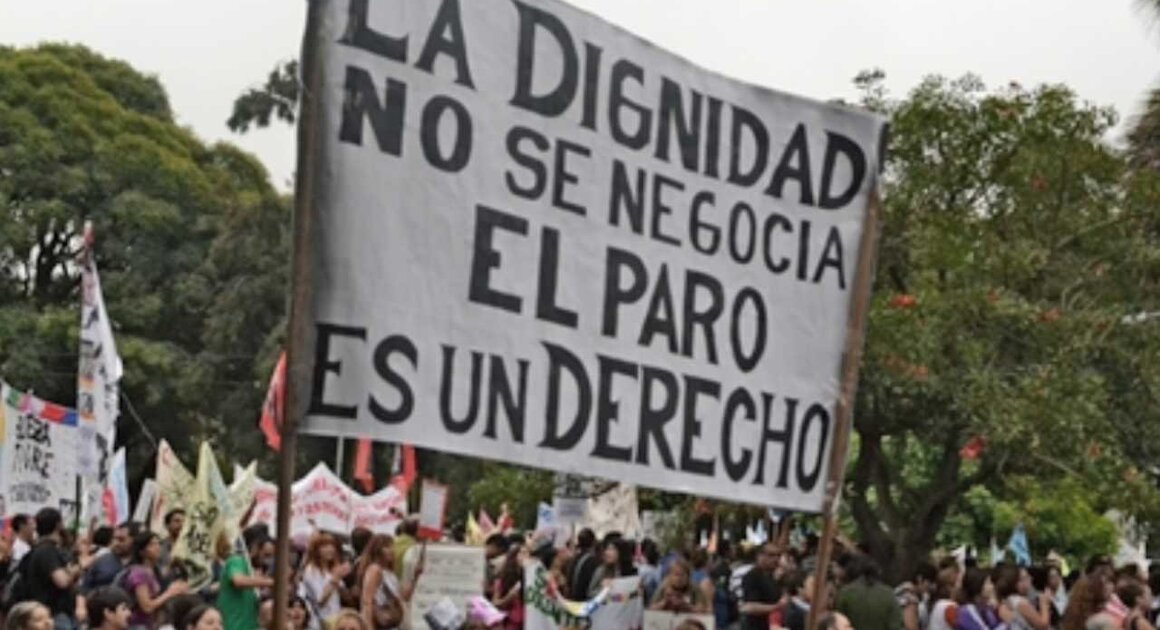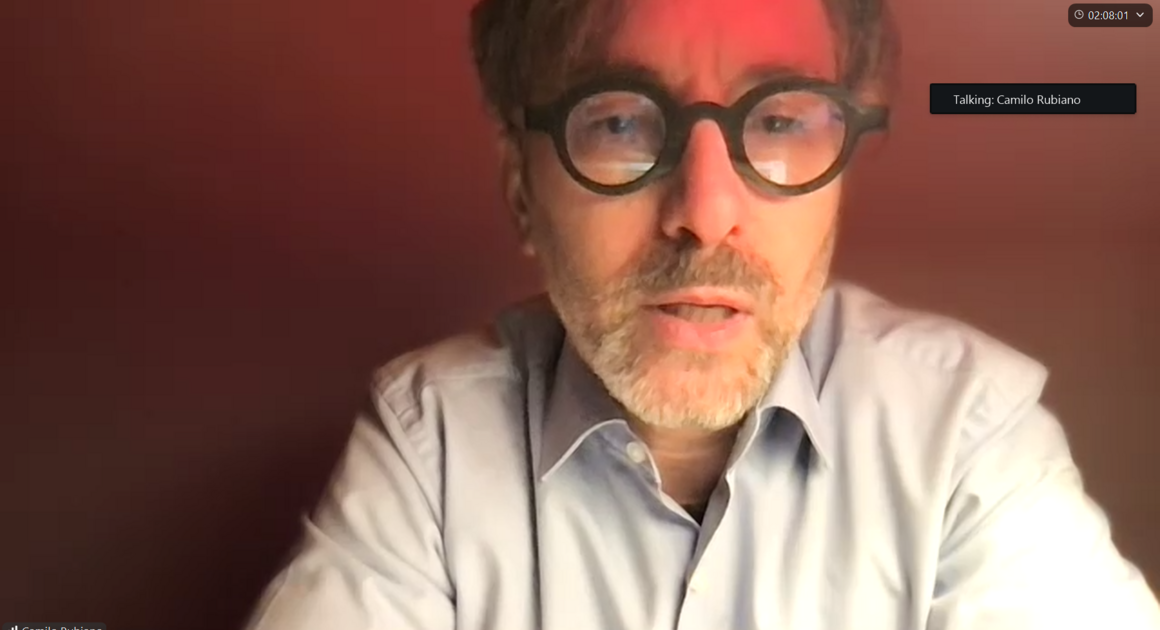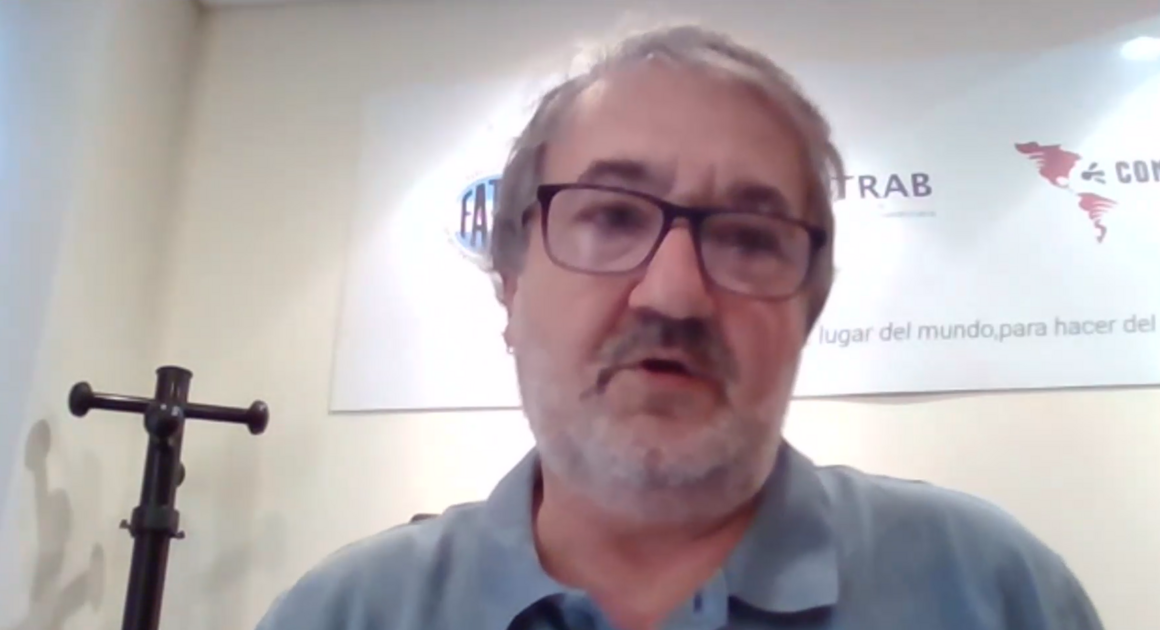- Tags (3)
Trade union organization 200 Union Leaders in Inter-America Analyze International Court Case on Right to Strike

A webinar with almost 200 PSI leaders from across Inter-America analyzed the political and legal scope of the right to strike in the framework of ILO Convention 87 and the consultation that is being heard at the International Court of Justice (ICJ)
Mayra Castro
In a context of increasing attacks on multilateralism and labour rights, Public Services International's (PSI) Public Administration Network brought together more than 180 union representatives from various countries in the region to analyze the political and legal scope of the right to strike under Convention 87 (freedom of association) of the International Labour Organization (ILO) and the consultation submitted to the International Court of Justice (ICJ).
The Court has begun its deliberations on whether the right to strike is protected by Convention 87, and this decision could have a huge impact. If positive, it will either consolidate the right to strike as a fundamental right and reinforce the authority of the ILO, or it will determine that the regulation of strikes is a matter for States under national law, leaving it outside of international supervision. The outcome of this process will have profound implications for trade unions in all sectors, but are particularly relevant for national administration workers, where arguments on the need to guarantee essential services and public order are constant.
The objective of the event was to present the background of the case before the ICJ. Marcelo Di Stéfano, secretary for union strengthening and organizing of the Trade Union Confederation of the Americas (TUCA) and one of the speakers of the webinar shared the arguments that presented during the public hearing held in early October. After these updates, leaders discussed the implications of possible outcomes and possible responses from public services trade unions.
PSI's global officer for trade union rights, Camilo Rubiano, presented a timeline of the struggle for the right to strike before the ILO over the last 15 years and highlighted that the consultation before the ICJ must be understood within a broader political dispute. "The Court's ruling, even if it recognizes the right to strike within Convention 87, will not solve the underlying problem as long as the ILO remains weakened and under political attack," he explained. Rubiano emphasized that the challenge is to build collective power: "The defense of the strike is not won only in the courts, but in the streets, by organizing and through international solidarity."
Camilo Rubiano PSI Global Officer for Trade Union Rights

"The defense of the strike is not won only in the courts, but in the street, by organizing and through international solidarity."
Di Stefano warned of an international scenario marked by attacks on multilateral organizations, including the ILO. "What is being questioned today is the subsistence of this United Nations organization, which has a protective character," he said. He explained that of the 18 States participating in the hearings, thirteen (13) expressed support for the long-held view that the right to strike is protected under ILO Convention No. 87. On the part of the International Trade Union Confederation (ITUC), among the arguments presented to the ICJ was that the right to strike is a corollary of the right to freedom of association.
For Di Stefano, what exists today are attempts to alter the tripartite system's structure to weaken trade union organizations' participation. "The attack on the right to strike is not an isolated event, but one more chapter in the offensive against workers' rights and union autonomy," he pointed out.
Marcelo Di Stefano Secretary of Union Strengthening and Organizing, TUCA

"The attack on the right to strike is not an isolated event, but one more chapter in the offensive against workers' rights and union autonomy."
Concrete experiences of PSI members in Inter-America.
Sharon DeSousa, president of the Public Service Alliance of Canada (PSAC), shared the experience of her country, where in 2015 the Supreme Court recognized the right to strike as part of freedom of association. However, she warned that "rights are never won permanently; they must be defended again and again." De Sousa recalled that 2023 saw the largest strike in Canadian public sector history, with more than 100,000 workers. "That demonstrated our collective strength, but also the legal limits that persist. We cannot rely on the courts alone; we must organize and act collectively when those rights are threatened," she stressed.
Sharon DeSousa President of the Public Service Alliance of Canada (PSAC)

"Rights are never won permanently. They must be defended over and over again."
José Miguel Delgado Bautista, of the National Federation of Education Sector Workers (FENTASE) of Peru, stressed that to question the strike "is already a violation of one of the three fundamental pillars of freedom of association. He recalled that in his country the State, being the main employer, "is also the main violator of rights", and that the strike has historically been "the fundamental instrument for confronting the State and defending not only labour rights, but also quality public services".
Ángela Rifo, the International Relations Secretary of the National Association of Public Employees (ANEF) of Chile, highlighted the relevance of the debate in "a rather complex political moment, with a reconfiguration of the global order and a brutal attack on multilateralism and tripartism". "In Chile, the right to strike in the public sector is not constitutionally recognized, but we have exercised it for years. Today, even with progressive governments, we face sanctions and wage loss for those who mobilize," she explained.
At the closing of the event, PSI's regional secretary for Inter-America, Euan Gibb, stressed that the current moment is critical to redefine the role of trade unionism in the face of democratic and climate crises. "The right to strike is not an end in itself, but an essential tool to defend social justice, equality and life-sustaining public services," he said. Gibb argued that trade unions in Inter-America have the responsibility to "defend multilateral spaces, strengthen alliances with other social movements and keep building the capacity to mobilize workers."
The participants agreed that international trade union movement must prepare for all possible legal and political scenarios arising from the ICJ consultation, while strengthening regional unity and coordinated, collective action.